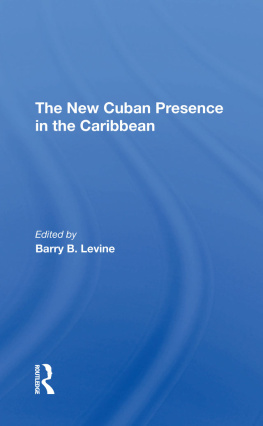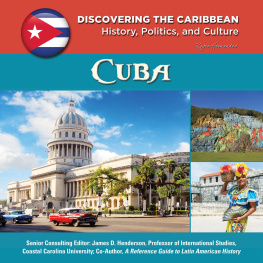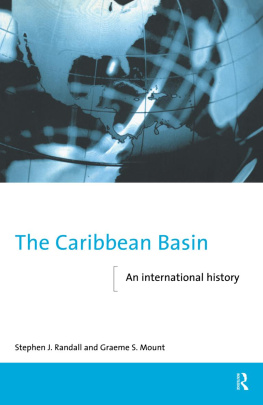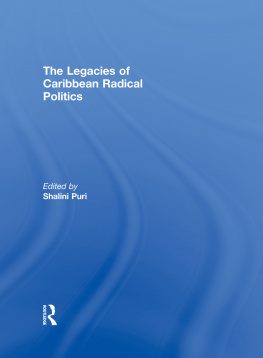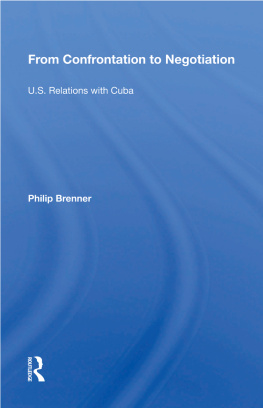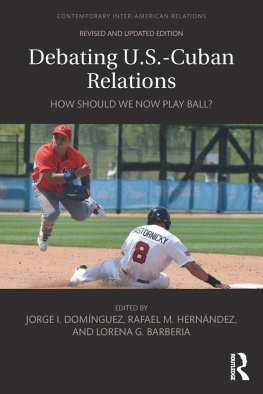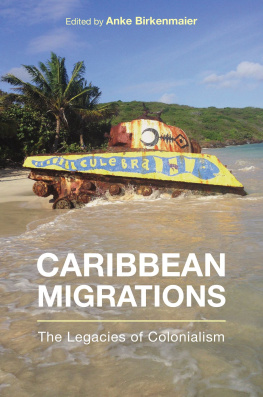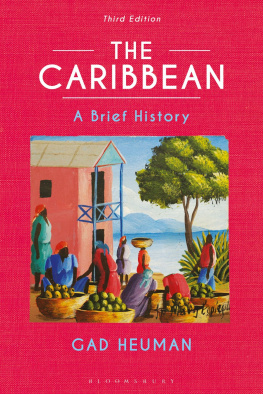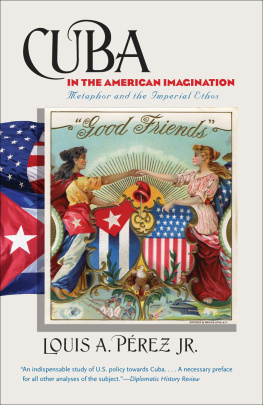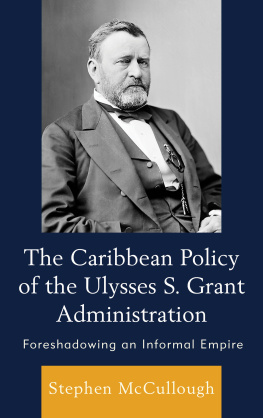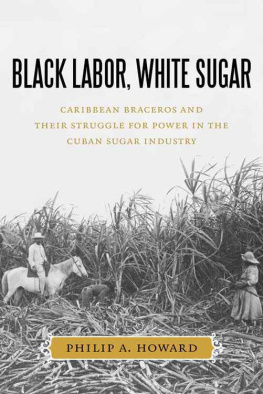The New Cuban Presence in the Caribbean
Also of Interest
Colossus Challenged: The Struggle for Caribbean Influence, edited by H. Michael Erisman and John D. Martz
The Foreign Policy Priorities of Third World States, edited by John J. Stremlau
Latin American Foreign Policies: Global and Regional Dimensions, edited by Elizabeth G. Ferris and Jennie K. Lincoln
Controlling Latin American Conflicts: Ten Approaches, edited by Michael . Morris and Victor Milln
Latin America, The United States, and the Inter-American System, edited by John D. Martz and Lars Schoultz
Communist Nations' Military Assistance, edited by John F. Copper and Daniel S. Papp
The Third World and U.S. Foreign Policy: Cooperation and Conflict in the 1980s, Robert L. Rothstein
Revolution in Central America, edited by Stanford Central America Action Network, Stanford University
Revolution in El Salvador: Origins and Evolution, Tommie Sue Montgomery
The End and the Beginning: The Nicaraguan Revolution, John A. Booth
The Caribbean Challenge: U.S. Policy in a Volatile Region, edited by H. Michael Erisman
Profiles of Contemporary Latin America
Mexico: Paradoxes of Stability and Change, Daniel Levy and Gabriel Szkely
Nicaragua: The Land of Sandino, Thomas W. Walker
The Dominican Republic: A Caribbean Crucible, Howard J. Wiarda and Michael J. Kryzanek
Colombia: Portrait of Unity and Diversity, Harvey F. Kline
Available in hardcover and paperback.
Westview Special Studies on Latin America and the Caribbean
The New Cuban Presence in the Caribbean
edited by Barry B. Levine
The Caribbean area projects an imagenot entirely accurateof instability, and it is within that context that the United States and Cuba, the region's chief protagonists, struggle.
This book explores in detail the history and nature of Cuba's influence in the Commonwealth Caribbean, Mexico, and Central and South America, as well as its relations with revolutionary movements and communist parties throughout Latin America. The authors place Cuba's Western Hemisphere contacts within the wider framework of the island's involvements with the Third World (especially Africa) and the Soviet Union. The meaning of the new Cuban presence becomes clear in the authors' analyses of the limits to that presence and the way the United States should respond to it.
The special issue of Caribbean Review on which this book is based has been described as "a round-up not only of Cuban involvement, but U.S. involvement as well... [that] articulates a political card game of scary proportions being played in what was once known as an American lake." The New Cuban Presence in the Caribbean provides a much expanded, completely revised study of the dynamics of Caribbean international politics, using Cuba's activities in the region as a focal point.
Dr. Levine is professor of sociology and anthropology at Florida International University. From 1965 to 1972 he was a member of the faculty at the University of Puerto Rico. Among his publications are Problemas de desigualdad social en Puerto Rico and Benjy Lopez: A Picaresque Tale of Emigration and Return. He is cofounder and editor of Caribbean Review.
First published 1983 by Westview Press, Inc.
Published 2019 by Routledge
52 Vanderbilt Avenue, New York, NY 10017
2 Park Square, Milton Park, Abingdon, Oxon OX14 4RN
Routledge is an imprint of the Taylor & Francis Group, an informa business
Copyright 1983 by Caribbean Review, Inc.
All rights reserved. No part of this book may be reprinted or reproduced or utilised in any form or by any electronic, mechanical, or other means, now known or hereafter invented, including photocopying and recording, or in any information storage or retrieval system, without permission in writing from the publishers.
Notice:
Product or corporate names may be trademarks or registered trademarks, and are used only for identification and explanation without intent to infringe.
Library of Congress Cataloging in Publication Data
Main entry under title:
The new Cuban presence in the Caribbean.
(Westview special studies on Latin America and the Caribbean)
"Based on a special-topic issue of Caribbean Review , with the same title"Pref.
Includes index.
1. Caribbean AreaForeign relationsCubaAddresses, essays, lectures. 2. Cuba Foreign relationsCaribbean AreaAddresses, essays, lectures. 3. CubaForeign relations1959- Addresses, essays, lectures. I. Levine, Barry B., 1941- . II. Series.
F2178.C9N48 1983 321.7291 83-5870
ISBN 13: 978-0-367-29432-8 (hbk)
This book is based on a special-topic issue of Caribbean Review, with the same title, that won for the journal several important honors among them finalist status in the 1980 National Magazine Awards where it was characterized as "a round-up not only of Cuban involvement, but of U.S. involvement as well... [it] articulate[s] a political card game of scary proportions being played in what was once an American lake." The New Cuban Presence in the Caribbean now provides in book form a completely revised and much expanded study of the dynamics of Caribbean international politics, using Cuba's activities in the region as the focal point.
The origin of the idea for this book dates back to July 1979, when I attended Carifesta, the biannual Caribbean arts and cultural festival, which was held that year in Cuba. Many images, not all consistent, date from that trip. One image is of the distrust with which the United States has been viewed by Third World intellectuals. To the extent that any debate was heard in Havana at all it was whether the Third World was to accept Cuban ideology or resist it. Put more sharply, it was clear that Third World intellectuals had become reluctant to think of the United States as a society worth trying to emulate. When Havana presented its arguments it did so on a Caribbean-nation-to-Caribbean-nation level. And Havana's aid when made at this regional level had unanticipated benefits: Third World countries, for example, that send their students to study medicine in Cuba are much less likely to suffer the brain-drain casualties that occur when such students train for medicine in the First World. I had hoped to articulate some of these ideas in the special-topic issue.
Carifesta was held amid a phenomenon that had, for all the hostility between the United States and Cuba, been taken as quite normal: the return of more than 100,000 exile Cubans to visit family and friends. Exiles, no longer referred to as gusanos, had become members of la comunidad. This mass interaction between the two parts of the Cuban nation seemed to be the capstone of an impending rapprochement between the United States and Cuba: Castro talking amiably of U.S. President Carter, the permitted exit of dual citizens, the release and flight of political prisoners, agreements on hyacking and fishing rightsall this suggested that some diplomatic changes were in the making, notwithstanding the Cuban military involvement in Africa.


